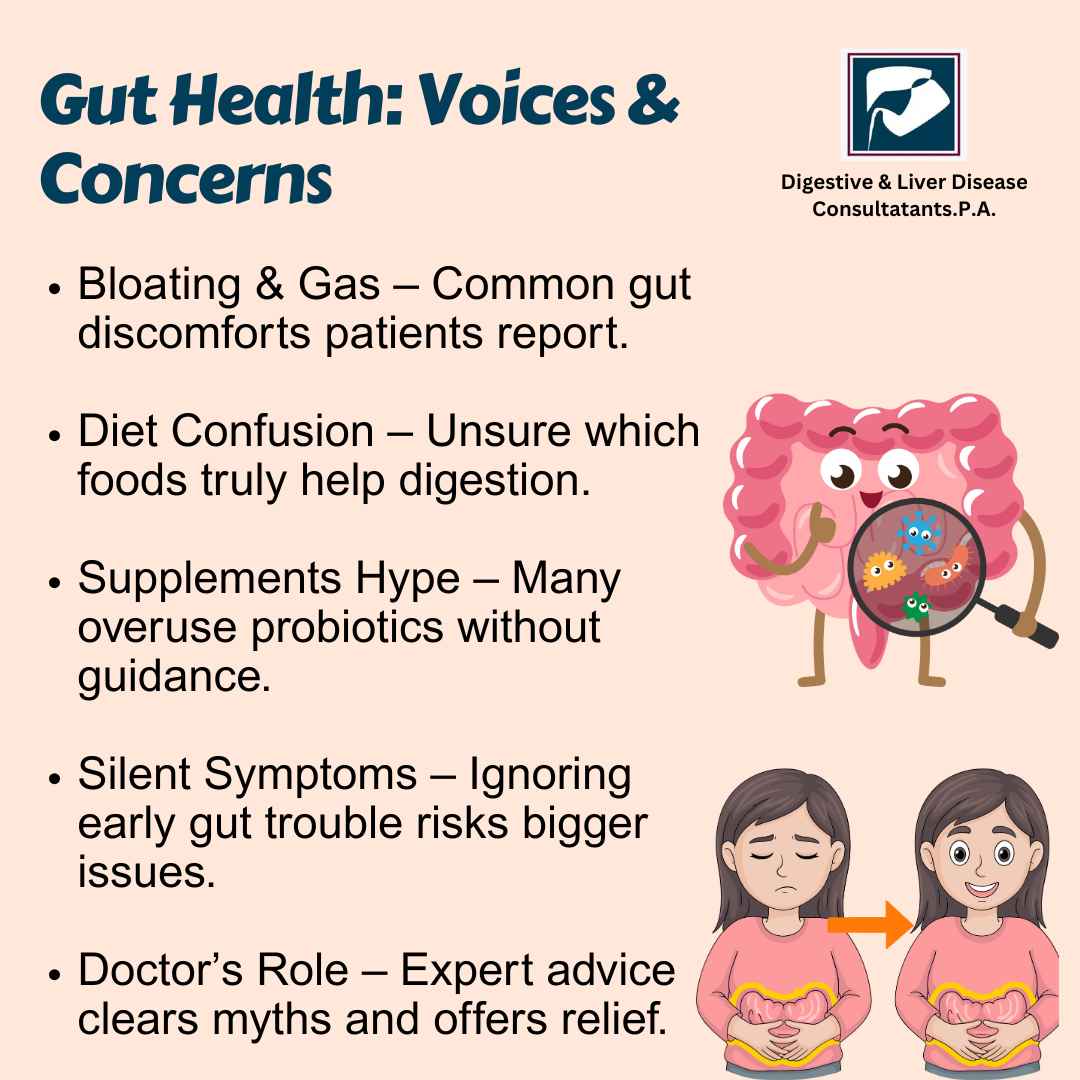Our gut is often called the "second brain" of the body. It plays a key role in digestion, nutrient absorption, immune function, and even mood regulation. When your gut is healthy, your whole body feels balanced. But when something goes wrong, you might notice bloating, discomfort, irregular bowel movements, or fatigue. Across the world, more people are speaking up about their gut health concerns, and doctors are paying closer attention than ever before.
Why Gut Health Matters
Your digestive system is made up of the stomach, intestines, liver, pancreas, and gallbladder. These organs work together to break down food, absorb nutrients, and eliminate waste. But gut health goes beyond just digestion. Studies show that:
- 70% of the immune system is located in the gut.
- The gut is home to trillions of bacteria, called the gut microbiome, which affects metabolism, immunity, and brain function.
- Poor gut health has been linked to conditions like irritable bowel syndrome (IBS), inflammatory bowel disease (IBD), fatty liver disease, and even anxiety or depression.
This is why so many people are raising their voices about their gut concerns. It is no longer a hidden or embarrassing issue. Instead, it is becoming part of everyday health conversations.

Common Voices Around Gut Health
Patients often describe their gut health struggles in simple but powerful ways. Here are some of the most common concerns:
1. Bloating and Gas
People often say they feel “puffy” or “swollen” after meals. While occasional bloating is normal, persistent symptoms may point to food intolerances, small intestinal bacterial overgrowth (SIBO), or IBS.
2. Constipation or Diarrhea
Changes in bowel habits are one of the clearest signals that something isn’t right. Many patients worry about going too often or not enough, and it affects their quality of life.
3. Food Sensitivities
From gluten to dairy, many people notice that certain foods trigger discomfort, cramps, or fatigue. This raises concerns about long-term conditions like celiac disease or lactose intolerance.
4. Abdominal Pain
Recurring stomach pain, cramping, or burning sensations are frequent reasons patients seek medical help. Pain may be linked to acid reflux, ulcers, or gallstones.
5. Liver-Related Concerns
The liver works closely with the gut to filter toxins and process nutrients. People with fatty liver disease or abnormal liver tests often experience digestive problems, fatigue, and discomfort.
6. Emotional Impact
Gut issues often affect mental health. Many patients feel embarrassed to discuss bowel habits or dietary struggles. Others feel anxious because of unpredictable symptoms. This emotional burden is just as important as the physical symptoms.
Why More People Are Speaking Up
For many years, gut health problems were considered private or even taboo. But today, there is more awareness and acceptance. Here’s why:
- Social media and health awareness campaigns are encouraging people to share their experiences.
- Medical research is uncovering connections between gut health and other conditions, including diabetes, heart disease, and obesity.
- Doctors and clinics are providing more patient-friendly resources to help people understand their digestive systems.
The result is a growing movement of patients who are no longer silent about their concerns. They are asking questions, seeking second opinions, and looking for trusted specialists.
How to Support Gut Health
Improving gut health doesn’t always require drastic changes. Often, small lifestyle adjustments can make a big difference. Here are some practical tips:
Eat More Fiber
Fruits, vegetables, beans, and whole grains feed healthy gut bacteria and improve digestion.
Stay Hydrated
Drinking enough water helps keep your digestive system moving smoothly.
Add Fermented Foods
Yogurt, kefir, sauerkraut, and kimchi provide probiotics that balance gut bacteria.
Limit Processed Foods
High-sugar and high-fat diets can upset the microbiome and cause inflammation.
Manage Stress
Stress directly affects digestion and can trigger IBS symptoms. Practices like yoga, meditation, or walking can help.
Exercise Regularly
Movement keeps your digestive system active and prevents constipation.
Get Medical Screening
Colonoscopies and liver function tests are essential tools for early detection of digestive diseases.
Professional Care for Digestive Concerns
While lifestyle changes are important, many gut health concerns require professional care. Self-diagnosing or ignoring symptoms can delay treatment and lead to complications.
This is where Digestive & Liver Disease Consultants, P.A. can help. Based in Texas, our clinic provides advanced care for a wide range of digestive and liver conditions. Our team of board-certified gastroenterologists is experienced in diagnosing and treating disorders such as:
- Irritable bowel syndrome (IBS)
- Inflammatory bowel disease (IBD) including Crohn’s and ulcerative colitis
- Acid reflux and GERD
- Liver diseases including hepatitis, fatty liver, and cirrhosis
- Gallbladder and pancreatic conditions
- Colorectal cancer prevention and screening
At Digestive & Liver Disease Consultants, P.A., we combine compassionate care with state-of-the-art technology. From routine checkups to advanced endoscopic procedures, we are committed to helping patients achieve better digestive and liver health.
Conclusion
Gut health is not just about digestion. It influences immunity, energy levels, mental well-being, and overall quality of life. Today, more people are speaking out about their concerns, and doctors are listening more than ever before. By understanding common gut issues and seeking professional guidance, you can take control of your health.
If you are experiencing bloating, abdominal pain, changes in bowel habits, or liver-related symptoms, don’t ignore them. Your gut is trying to tell you something.
If you suffer from ongoing digestive or liver problems, schedule a consultation with Digestive & Liver Disease Consultants, P.A. Our expert team is here to listen to your concerns and provide personalized treatment to restore your health.






